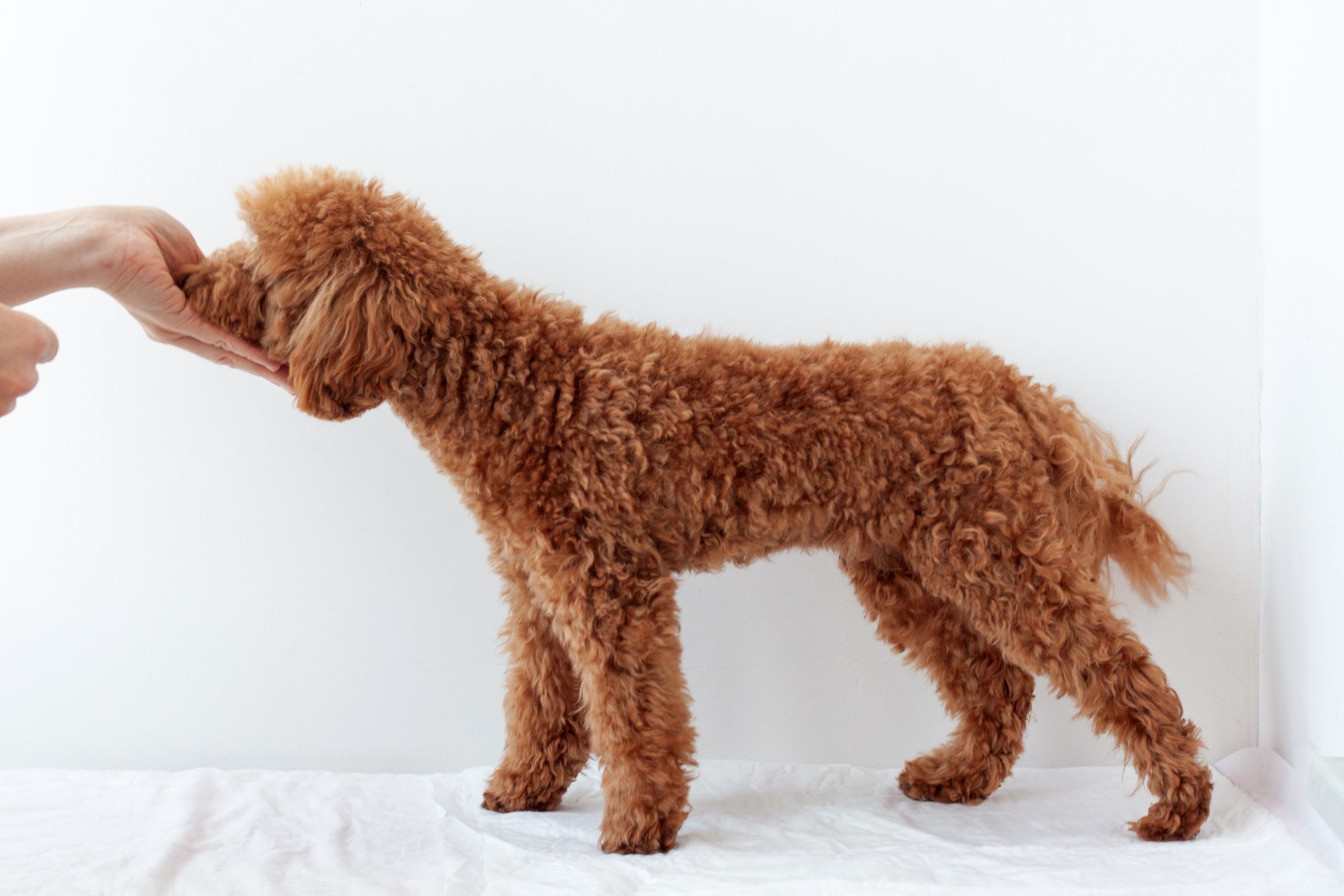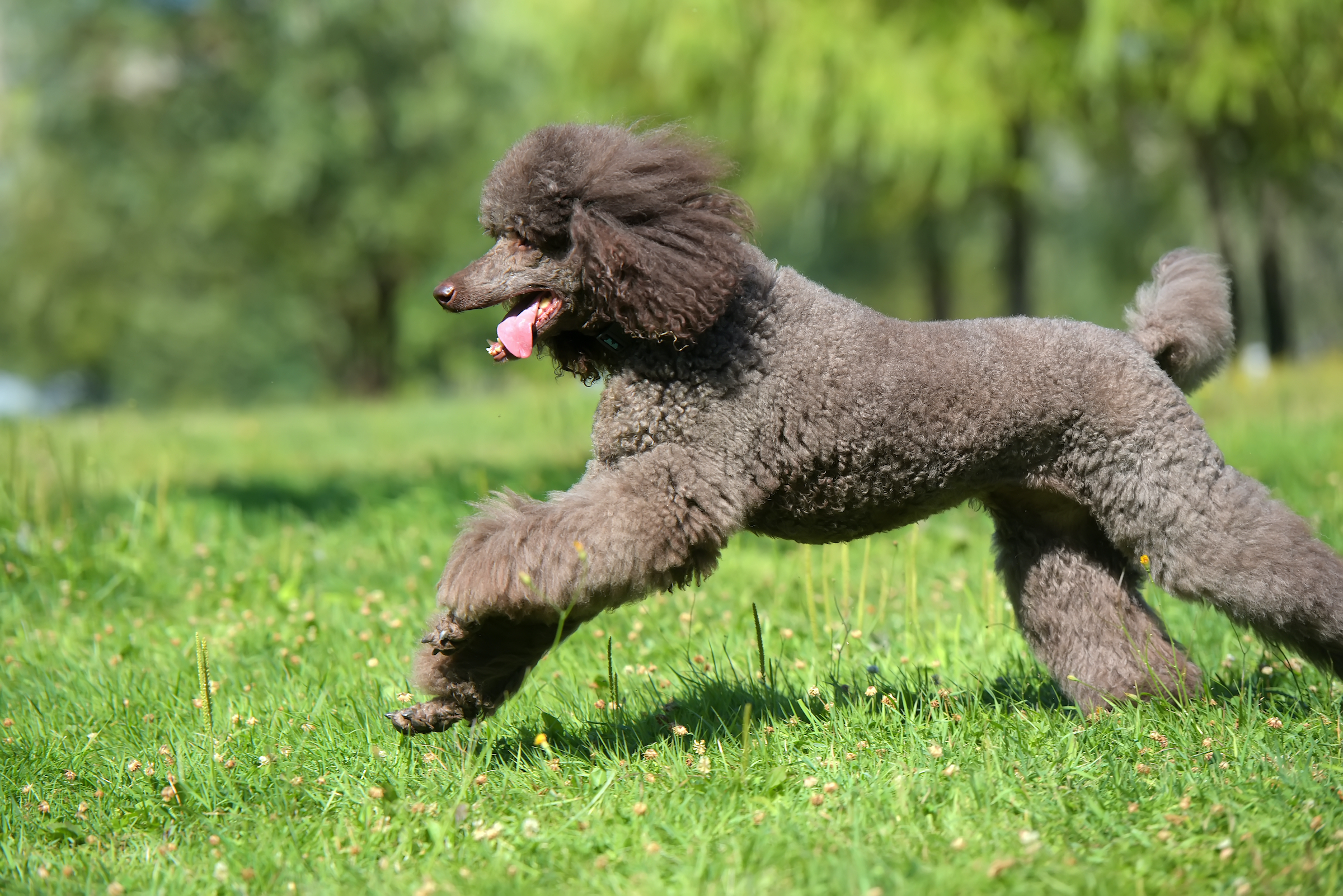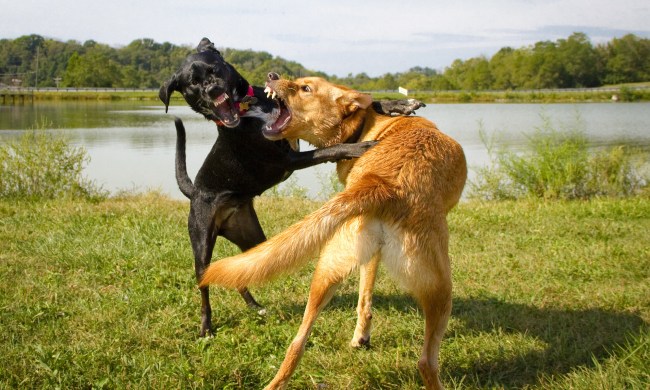Poodles are well-known for their elegant coat and detailed grooming styles, but is it a coincidence that their regal behavior is a perfect match? Yes and no — this breed is naturally very smart, friendly, and adaptable, but it also takes patience and consistent training to raise a happy and healthy poodle.
But first, you’ll need to learn how to train a poodle. This won’t be that different from training any other dog, but you will need to take some of their unique characteristics into account. So before we dive into training your precious four-legged friend, let’s learn about their breed and what makes them so uniquely…them!
Are poodles easy to train?
Poodles have beauty and brains — but because of their high intelligence and ability to learn quickly, training can go one of two ways. On the one hand, your dog may pick up on new skills and feel eager to show them off, but on the other hand, your pup could be stubborn and resist training as well (via Canine Perspectives). Or your poodle could even tune into destructive yet enjoyable behaviors you weren’t trying to teach.
Luckily, the American Kennel Club lists all sizes of poodles — standard, miniature, and toy — as incredibly eager to please. Once you find the perfect reward for your dog, you’ll likely have no trouble keeping her attention. Try treats, praise, or even a short game of fetch.
Even though these proud pups are very smart and trainable, they also need a lot of mental stimulation to avoid boredom. It may help to change up your training routine every now and again; even practicing in another room can be enough of a difference to make your poodle think a little harder. Better yet, try moving on to the next step of training if she seems comfortable with what she knows.

At what age you can train a poodle?
The adage “you can’t teach an old dog new tricks” has been absolutely debunked. Dogs of any breed and any age are capable of expanding their skillset. Although puppies have more of an innate curiosity for the world, that curiosity never completely goes away. “If a dog is awake,” notes VCA Hospitals, “he is learning.”
In fact, despite having less energy than their younger counterparts, many older dogs can focus for a lot longer. Starting habits young is always a great idea, though. Just don’t be frustrated with your puppy if he doesn’t pick up on new skills as quickly as you’d like. Even older dogs can have trouble picking up on training — age isn’t the only factor.
If you have a poodle puppy on your hands, you can start socializing him at around seven or eight weeks of age (once he has had at least one set of vaccines for a week or longer). Socialization is like an early form of training in that it exposes pups to different environments and situations, though they won’t be ready for verbal commands quite yet (via AKC).

How to train a poodle
Training a new furry friend won’t happen overnight, but it will happen. The first things you’ll need to do are teach your dog her name and decide on the house rules. Consistency matters when training a poodle — or any pup — says Pedigree, so make sure everyone at home is on board. If someone lets your buddy on the couch, for example, while everyone else does not, your dog will likely be confused and “break the rules.”
Rewarding good behavior should start right away, no matter your pup’s age. Even if she doesn’t yet recognize the words you’re saying when you praise her, a positive tone of voice goes a long way (as does a treat). This affectionate breed will respond best to positive reinforcement and gentle corrections when needed — just remember to be consistent! It’s important that corrections are never forceful or frightening, as this is the fastest way to lose your dog’s trust.
Whether you’d like to start with loose leash walking or some simple obedience commands, keeping these tips and tricks in mind will give you a solid foundation. That’s one less thing to worry about! Positive reinforcement and consistency will always be key no matter what you’re teaching, so you can take this info with you no matter where life takes you and your best poodle pal.



